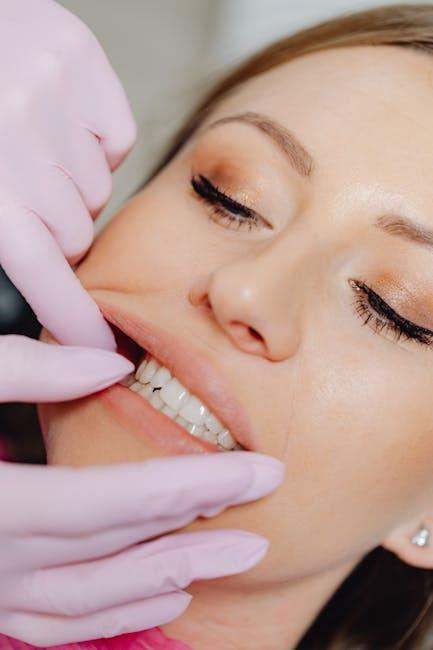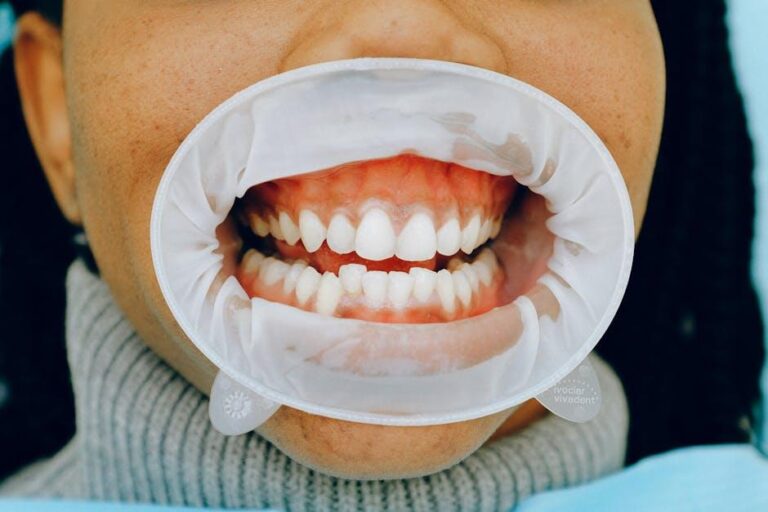
Poor Oral Health Potentially Linked To Chronic Health Problems – U.S. News & World Report
Meta Description: Discover the strong connection between poor oral health and chronic health problems. Learn prevention tips, case studies, and expert insights featured by U.S. News & World Report.
Introduction
Oral health is more than just a bright smile or fresh breath—it plays a vital role in your overall well-being. According to U.S. News & World Report, emerging studies reveal a potentially strong link between poor oral health and a range of chronic health problems. This connection highlights why maintaining good oral hygiene isn’t just about teeth and gums but also about preventing more serious systemic diseases.
In this article, we’ll explore the relationship between oral health and chronic illness, discuss potential risks, share practical tips for better dental care, and review some notable case studies. Whether you’re looking to protect your teeth or understand how your oral habits impact your entire body, this guide will provide valuable insights.
The Link Between Poor Oral Health and Chronic Health Problems
Dental care experts and medical researchers have been investigating the correlations between oral health and systemic diseases with growing urgency. Here are some key chronic health issues linked to poor oral hygiene:
- Cardiovascular Disease: Gum disease (periodontitis) is associated with increased risk of heart attack, stroke, and clogged arteries.
- Diabetes: Infections in the gums make it harder to control blood sugar, worsening diabetes symptoms.
- Respiratory Infections: Bacteria from gum disease can be inhaled into the lungs, causing pneumonia or other infections.
- Alzheimer’s Disease: Chronic gum inflammation is suspected to contribute to cognitive decline.
- Pregnancy Complications: Poor oral health has been linked to premature birth and low birth weight.
While research is ongoing, U.S. News & World Report emphasizes the importance of recognizing oral health as a gateway for maintaining overall health.
How Does Poor Oral Health Affect The Body?
When bacteria multiply around the gums, the inflammation can enter your bloodstream, potentially triggering systemic inflammation and exacerbating chronic health conditions. This oral-systemic connection explains why taking care of your mouth is essential not only for dental wellness but for general health too.
Key Risk Factors and Warning Signs
Understanding the risk factors can empower you to prevent poor oral health before it leads to chronic issues. Watch out for these signs:
- Persistent bad breath or bad taste
- Bleeding gums during brushing or flossing
- Swollen, red, or tender gums
- Loose or sensitive teeth
- Difficulty chewing or discomfort when biting
People with risk factors such as smoking, poor diet, inadequate dental hygiene, and existing conditions like diabetes should be extra vigilant to monitor and manage their oral health.
Benefits of Maintaining Good Oral Health
Prioritizing oral hygiene doesn’t just protect your teeth; it offers numerous health benefits you might not have expected:
- Reduces risk of cardiovascular disease by lowering systemic inflammation
- Improves diabetes management through better blood sugar control
- Prevents respiratory infections by lowering bacterial colonization in the mouth
- Supports cognitive function by reducing inflammatory markers linked to dementia
- Promotes healthy pregnancies with fewer complications
Practical Tips for Better Oral Health
Incorporate these expert-backed tips into your daily routine to safeguard both oral and systemic health:
- Brush Twice a Day: Use fluoride toothpaste and proper technique to thoroughly clean all tooth surfaces.
- Floss Daily: Remove plaque and food particles between teeth that brushing misses.
- Maintain a Healthy Diet: Minimize sugary snacks and drinks that fuel harmful bacteria.
- Regular Dental Visits: Schedule check-ups and professional cleanings at least twice a year.
- Avoid Tobacco: Smoking increases the risk of gum disease and related chronic illnesses.
- Manage Chronic Conditions: Keep diseases like diabetes well-controlled to support oral health.
Case Studies: Real-Life Impact of Oral-Systemic Health
Consider these examples where oral health status significantly influenced chronic medical outcomes:
| Case | Oral Health Issue | Chronic Health Impact | Outcome |
|---|---|---|---|
| Mr. S, 58 | Severe periodontitis | Increased risk of heart attack | Improved heart health after dental treatment |
| Ms. L, 44 | Gum inflammation and poor hygiene | Worsened blood sugar in type 2 diabetes | Better glucose control with improved oral care |
| Mrs. R, 33 (pregnant) | Untreated gingivitis | Preterm labor risk | Healthy full-term delivery after periodontal therapy |
These cases reinforce the importance of oral health as part of holistic healthcare strategies promoted by U.S. News & World Report and other health authorities.
First-Hand Experience: The Power of Oral Care
Jessica, a 47-year-old teacher, shares her journey:
“I never realized how much my gum disease was affecting my health. After struggling with fatigue and blood sugar spikes, my dentist pointed out the connection between my oral health and diabetes. I committed to a rigorous dental care routine, and over time, my blood sugar levels stabilized. It’s empowering to know that taking care of my teeth helped my whole body.”
Stories like Jessica’s encourage people to consider oral health a cornerstone of overall wellness.
Conclusion
Oral health is a vital yet often overlooked component of overall health. As U.S. News & World Report highlights, poor oral hygiene can be linked to serious chronic conditions including heart disease, diabetes, respiratory problems, and more. By understanding the oral-systemic connection and adopting proactive dental care habits, you can significantly reduce these health risks.
Regular dental visits, consistent brushing and flossing, a balanced diet, and lifestyle modifications like quitting smoking can all protect your mouth and your body. Prioritize your oral health today to enjoy not just a brighter smile but a healthier life.
Remember: Your mouth is a window to your overall health—take good care of it!


